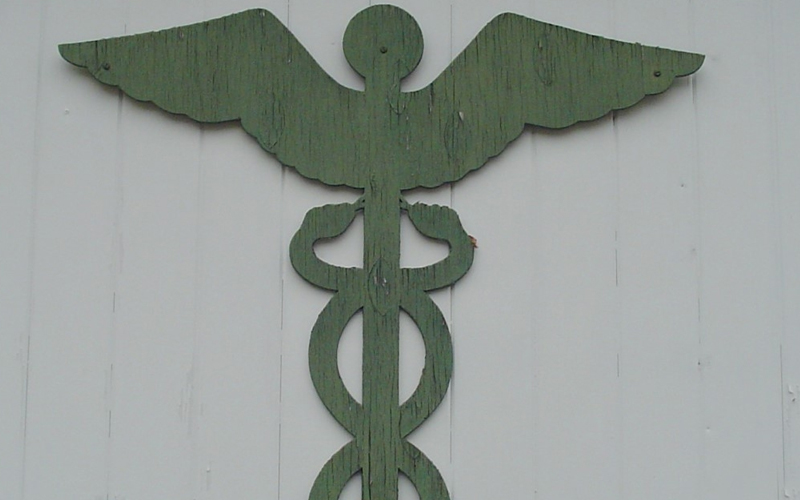Is it possible to Turn Bad Debt into Good Debt? It is under a new credit scoring model.
As most of you know, many lenders use the FICO score to determine whether to give you a loan or not and what interest rate to provide you. As MSN Money reports, in 2008, Fair Isaac adjusted its famous FICO credit scoring model that could impact millions of people. And amazingly, it could impact millions of people in a positive way to turn bad debt into good debt.
Fair Isaac has made major changes to how it scores smaller bad debt. According to the MSN Money article, the new FICO 8 score does not penalize you as much if you have missed payments on small debts under $100. According to Fair Isaac, these small bad debts tend to be medical ones. Medical debts are involuntary debts and may be considered good debt. Studies have shown that many people struggle with medical debts that they believe are incorrect and the Federal Reserve has estimated that half of all debts in collection are medical bills.
So how does this Turn Bad Debt into Good Debt? For people who have small debts, this means that non-payment of those bills will not impact their scores as much. For some people, this could be the small difference between qualifying for a house or car loan, gaining employment or securing life insurance policies. This blog post is not suggesting that you don’t pay the medical bills or small balances under $100, you are still contractually obligated, so you should still pay them. However, it is reassuring to know that these small bills won’t impact your score as much. So even if you are still disputing medical debt or just cannot pay it, it is possible, under this new model, to turn bad debt into good debt.
Conversely, credit card utilization continues to penalize debtors the most. Credit card utilization factors in how much credit you have available (on your credit lines) and how much you have used. If carry over 50% of your credit line each month as a balance, this will hurt your credit score. It can even hurt your score if you pay off your debt each month. Although, it does not make sense literally, in real time it does. If you have $10,000 in credit available and you charge $7000 each month to pay bills and buy gas and food, while you may be earning Rewards points with your credit card, you are also raising the amount owed under the credit limit. So even though you pay in full each month, depending upon what time of the month a lender looks at your credit score, you could be impacted with a lower or negative credit score.
For those who carry high balances on their credit cards, these new FICO 8 scoring model will likely mean lower credit scores. Naturally, one of the best ways to counter this is to keep balances on your credit cards under 30%. If you have a card with a high limit, but low balance, it may even be beneficially to transfer balances from other cards to the higher limit card to get all the card balances under 30% of the limit.
Fair Isaac is not letting us know which lenders and creditors are using their new model. But information from the MSN Money article suggests that most creditors are NOT using the new scoring model yet. So you may have to wait to turn bad debt into good debt. However, the article also notes that many lenders are looking at the model and suggests that many lenders will eventually move to the new model.
To understand the impact of your credit and credit score, you need to know what your credit looks like. We have a good blog post discussing how to improve your credit after filing for bankruptcy protection. Even if you have not filed for bankruptcy protection, this blog gives good information about monitoring your credit each year and how to re-establish good credit. We always advise debtors to run their credit reports every year. You can get one free report from the three major credit bureaus each year. Go to www.annualcreditreport.com to access the web site set up by the Federal Government under the FACT Act. You will set up an account with each agency. They will issue you a login and password. Keep this information handy — you will need it later.
OUR RECOMMENDATION: Your credit score (FICO) and how high you can get it after bankruptcy are important. We recommend that you download FICO’s 17-page booklet called Understanding Credit Reports and Scores.
You can find it on FICO’s web site at www.myfico.com/CreditEducation/.
Please visit our website for more information about us and bankruptcy. You may also view our video with Bankruptcy Information.
Call us today at (713) 974-1151 to schedule a no-obligation consultation or feel free to email us at [email protected].
We provide bankruptcy services in the greater Houston metro area including the cities of Katy, Sugarland, Pearland, Friendswood, Clear Lake and Galveston. We also handle cases from The Woodlands, Spring and Tomball and cases in Baytown and Channelview.
We handle bankruptcy cases in all of these counties: Brazoria, Chambers, Galveston, Matagorda, Austin, Brazos, Colorado, Fayette, Fort Bend, Grimes, Harris, Madison, Montgomery, San Jacinto, Walker, Waller, Wharton
[paypal-donation]













